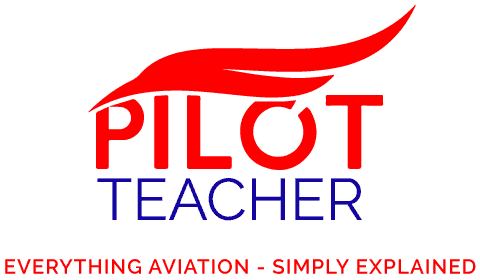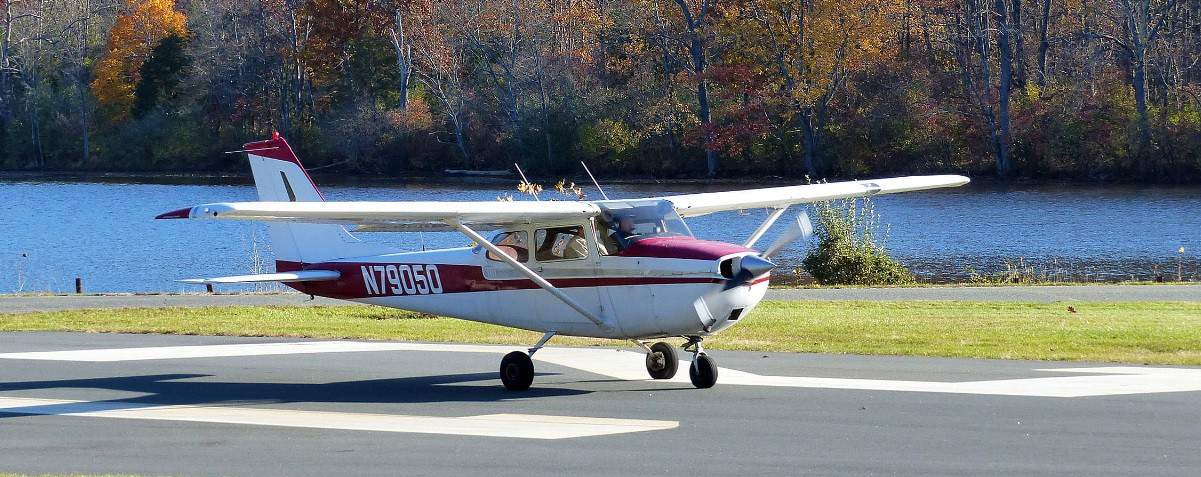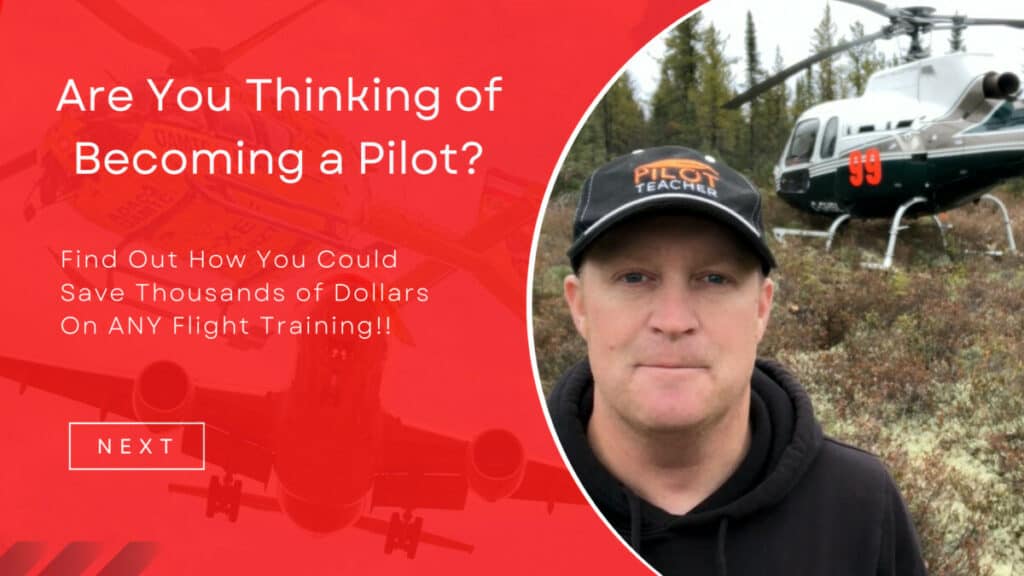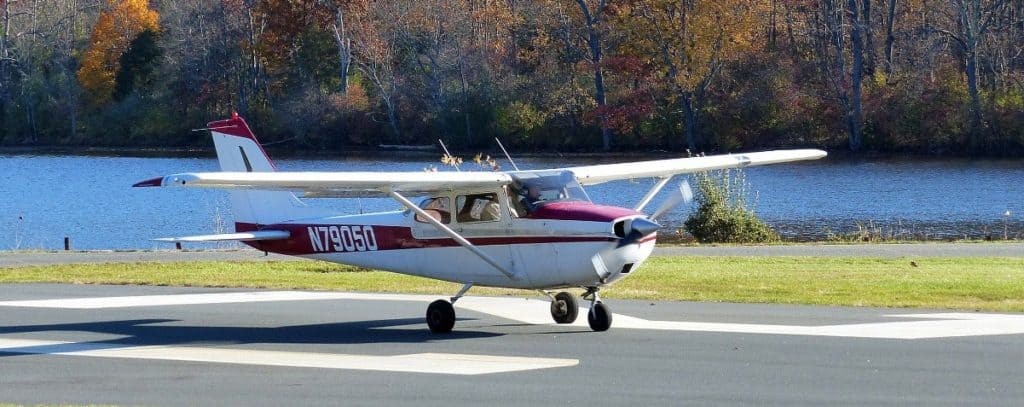
When starting out on a career path in aviation the question of where you train has cropped up a few times with students wondering if training at certain schools can give them an advantage when it comes to interview time. Does it really make that much of a difference where you learn to fly? Can it give a student an edge over someone else? All valid questions with a lot of confusion surrounding them
For most pilots, the school where they train has very little influence on getting a job. When pilots are in short supply major airlines may accept students with lower credentials than normal. When pilots are abundant the airlines pick the best students and where they were trained may make a difference.
Selecting a flight school has a lot more to do than just its reputation within the industry. There are both good students and poor students that come out of flight schools of all different reputations, but depending on the type of career you are planning to have, selecting the right flight school can help you get an edge when it comes to interview time for your dream job.
Having been a student and an instructor at a large, very reputable flight school I have a good insight as to what I have seen and experienced during my times there. To find out, keep reading…
Does Flight School Reputation Matter?
This can be split into two trains of thought:
School Reputation Within the Industry
The business of flight training is a cut-throat industry. Every school claims it’s the best at what they do. For most flight schools, the quality of their training is paramount to their reputation, and most work very hard at it. However, there are times when the financial gain of a school becoming popular begins to grow rapidly and many schools can grow too fast leading to a drop in its reputation in the following ways:
- High turnover of instructors leading to inconsistent standards
- Student focus begins to lapse and the quality of learned skills reduces
- Maintenance staff overworked keeping up with aircraft hour demands
- Student concerns begin to filter into the industry
- Increasing students not passing the required grade during graduate interviews
Some of these may sound innocent but a flight school that begins to grow faster than it can cope with can start to lose its reputation, especially with its industry contacts if they begin to see a decline. A school that begins to lose its power to send its graduates to the major leagues can be very hard for them to recoup that connection. I saw this when I was selecting my flight school and it’s one of the reasons I chose a different school.
A good flight school recognized within the industry is one that maintains its focus on its students and the quality of flight training they receive.
School Reputation to Prospective Students
The reputation of a flight school can differ greatly among potential students looking to attend. Each student may have a different part of the school’s reputation that matters most to them and depending on that reputation the student may wish to apply to that school or look elsewhere. Here are just some of the reputation factors that many students wish to exploit to their own advantage, especially upon graduation:
* Airline-Focused Flight Training Programs
For students aiming to become an airline pilot a school that specializes in training a student from day one in a very airline-style syllabus could be very appealing. Most of the major airlines put in many, many months of training into their new hires and they expect the highest levels of study and progression from their investment.
This intense level of training can come as quite a shock to students who have not been trained in a similar fashion. Schools that have a good reputation for preparing students for the airlines could be high on a student’s list if this is the direction in which they wish to pursue.
* Airline Graduate Programs
Some flight schools may have a high success rate of job placement with certain airlines or aviation companies. Partnerships built over years of close working relationships help to tailor flight training programs to suit an aviation company’s particular roles.
For students wishing to fly for said companies after training, the promise of a job interview upon graduation is a highly-prized incentive. Students have to be mindful of the old ‘Carrot Dangle’ that many flight schools seem to advertise but seem to very rarely follow through. Reading the fine print and doing the research before relying on a school’s reputation for this factor is highly advised!
* Airline Associated Training Schools
Some airlines enter into a partnership with a particular flight school for training their sponsored students. Joining such a flight school, not even as a student of that airline can help you prepare for a similar career as you will be trained to the same, if not very similar standard as the partnered airline students. Having an affiliation with an airline shows the school has a high level of training and has perfected its syllabus to the exacting standards of that carrier.
When a student trains alongside airline-sponsored trainees they will receive the same quality of training, they can then demonstrate to other companies/airlines when they graduate and are looking for a job – If you can’t beat em, join em!
* Industry Contacts
Flight schools with a good reputation have contacts all over the aviation industry ranging from past graduates to friends, and colleagues. Being able to use those contacts to get information of upcoming hiring, inside information on salaries and working conditions, and even knowing who the current Chief Pilot or HR manager is can be a huge advantage to students.
Networking and referring of students for pilot jobs is one of the best ways to get hired by a company. I have referred, and have been referred myself for a few jobs throughout my career and you will be surprised at how many of those contacts I met while at flight school!
* Safety Record
The safety record of any flight school must be at the very top of every student’s list when selecting which school to pick. When you have been in the industry long enough you will begin to hear when certain schools begin to let their standards slip, maintenance reduces, aircraft begin to look worn out or campuses begin to get a little grotty.
When small things start happening at a flight school, it can easily begin to snowball if not addressed immediately.
Flight schools with excellent safety reputations will be instantly recognizable the second you tour their facility.

Join My Newsletter & Get Great Tips, Information and Experiences To Help You Become a Superb Pilot!
* Training Quality
A flight school’s reputation for the quality of its training MAY mean the difference of being hired upon graduating or not. When there is an abundance of pilots hitting the market there MAY be preference given to students from certain flight schools because the standard of their training has been proven over and over again.
When graduating pilots are in demand, the quality of training from unheard-of flight schools may be overlooked to a certain extent. Ensuring that instructors can teach a student to fly well, think ahead, plan for the unexpected, and work under pressure is a must when preparing a student for work in the aviation world. If a flight instructor has just earned their wings or seems to be too old to fly then a look at alternatives may be required!
* Training Type
Depending on the type of job you wish to fly, will depend on the type of training you need to receive. Are you planning to fly for a major airline? Are you planning to live somewhere tropical and just fly tours? Are you planning on living in a small town and serving the local communities by air?
Someone wishing to fly a Boeing 747 will need training far different from a student wishing to serve remote fishing lodges in Alaska by floatplane. Because of this, it’s important to match the school and instructor to the type of flying you wish to pursue.
* Training Location
This goes hand-in-hand with Training Type. If you wish to fly in certain locations for your career then pick a reputable flight school that trains in those areas. Training for the airlines can be completed pretty much anywhere, but you know you will be a much better pilot if you train at a school where the weather changes constantly.
- Windy locations create pilots that can land in any condition
- High-altitude locations create pilots that can deal high high-density altitude performance
- Mountainous locations create pilots that can safely fly in mountain weather
- Coastal locations create pilots that can deal with coastal weather
Just because a school bases its reputation on year-round flying because of its weather,
does not mean they make better pilots!
If the first time a graduate pilot gets to fly on the coast with mountains along the shoreline is in their first job, that pilot will be shortening their life considerably through stress once that weather turns on them!
Pick the flight school’s location to match the flying career you wish to have!
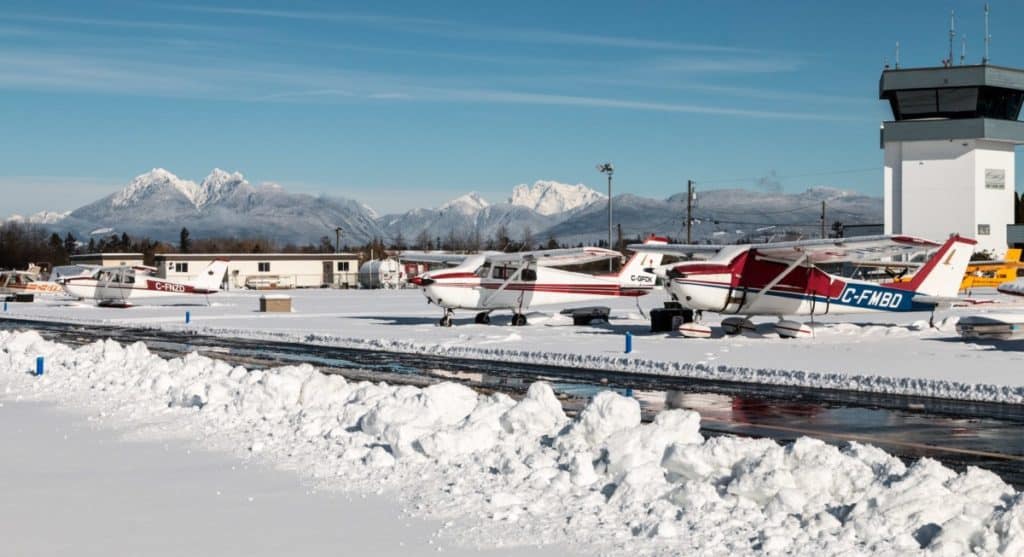
Learn More…
Try These Articles:
* Flight School: Full-Time Vs Part-Time Training
* Flight School Requirements – Are There Any For Joining?
Are All Flight Schools The Same?
Flight schools are very different from one another. The type of training they offer, the location and weather in which they train, and the focus of where their graduates get hired make a vast difference. The large size of a school does not always mean it’s the best.
Flight schools can come in many different forms and sizes. There are pros and cons to each type of flight school but a student pilot needs to spend a good amount of time researching, visiting, and finally selecting which flight school best suits them. Learning to fly, even a Sport Pilot Certificate is not a cheap endeavor so spending the money wisely is essential.
Here is a selection of the most typical types of flight school you will find all over the globe:
Small Aviation Companies with a Training Department
Many commercial airplane and helicopter companies can have a small flight school. Having an instructor and examiner on staff allows the company to complete its own annual recurrent pilot training and using those instructors the rest of the time is a great way to bring in extra revenue.
This was exactly how I completed my Private Pilot Certificate.
Small schools can create a very personal training environment that can greatly improve the fun of learning to fly. When at a large school you can feel like you are just a number and every face you see is different, you can feel a little isolated at times.
Match the training school to the type of flying you wish to pursue!
Dedicated Fight Training Schools
After completing my Private Pilot Certificate and I decided I wanted to make aviation my career so this was then when I moved to a large, dedicated flight school.
This type of flight school allows for immersion into training which can dramatically increase a student’s learning progression. Talking with other instructors and students can get instant answers to questions. Having a larger selection of aircraft of varying types helps to increase the flying experience.
Most of these schools will have dedicated Part 141 pilot training syllabuses’ for each pilot certificate with some being extremely focused on specific career paths – Major airlines for example.
When multiple certificates, ratings, and endorsements are required dedicated flight schools become a very sensible option for most student pilots.
Flight Schools Attached to Colleges & Universities
When a student is wishing to obtain a degree while learning to fly, attending a college or university with a flight training program is a great option. Some of the colleges and universities will have their own flight training department, while others may subcontract out the training to a local flight school.
As with all colleges and universities, there is competition and the prestigious reputations are in full effect, and rightly so. Some of the university flight schools have very good, proven, and refined training programs with well-trained, airline-ready graduates passing through its doors for decades. Competition can be fierce for these spots each year and most of those students will have spent most of their high-school years studying to get that spot!
For the majority of students who wish to earn a degree it is not hard to get a spot on a program as most cities will have at least one university or college that runs a flight training program, so selecting a school that meets your reputation standards should not be too difficult.
Sole Instructor
When a flight school is a bit too much for someone wishing to learn to fly, an individual instructor can be more suited. For students wishing to earn a Sport Pilot, Recreational Pilot, Private Pilot Certificate or train on specialist aircraft types like floatplanes, taildraggers, kit builds, or bush aircraft then an individual instructor is a very popular choice, especially in rural locations.
Learn More…
Try These Articles:
* Do You Need a Pilots License To Fly?
* When Can You Learn To Fly? All Ages Explained
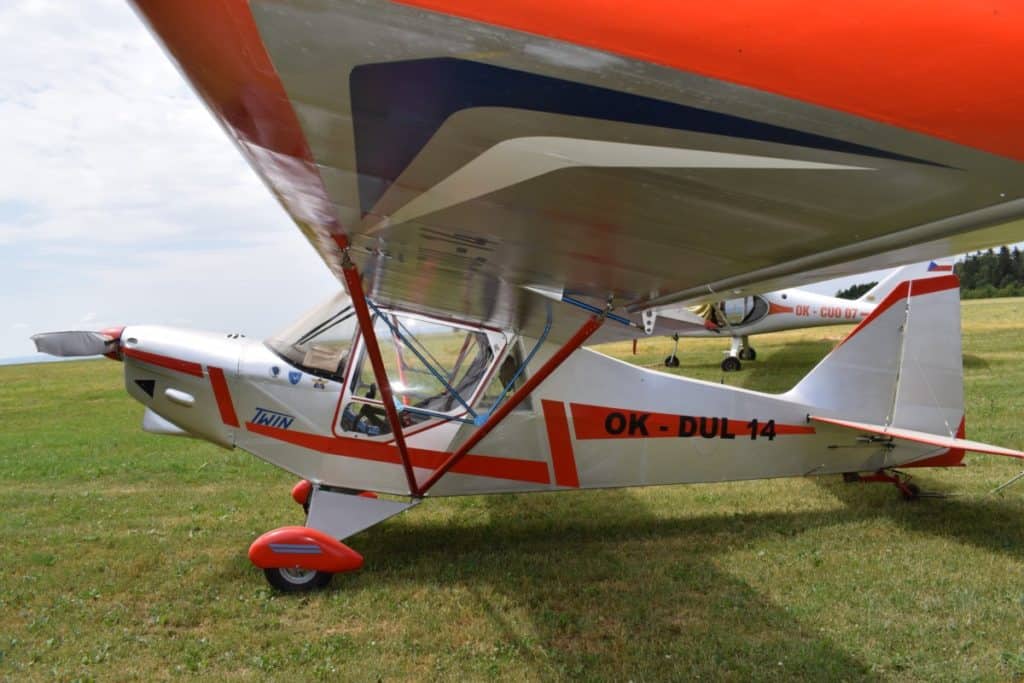
Many local flying clubs will be able to recommend or even have an instructor as a member that has the perfect expertise you may be seeking. When a more one-on-one, personal touch or even wishing to train in your own aircraft is required then this is a great choice. Finding a good instructor with a respected reputation may take some finding, but once you have that person, then great friendship is not uncommon.
How Do You Choose the Right Flight School?
A flight school should be selected based on a student’s career goal. Preparation for the type of flying, aircraft type, industry connections, safety record & post-graduation hire success rate is key. Training quality, aircraft & instructor availability, and cost can then be used to create a shortlist.
When a large financial decision like learning to fly is to be made selecting a flight school is something that should take months of research. There are so many schools that all promise the earth, but selecting the wrong school can place you on a path to a big hole in your pocket and training that is incomplete or poor quality not enabling you to reach your dream of becoming a pilot, either recreationally or professionally.
Here are a few tips to research when looking at each school:
- Look at their safety record
- Find out where most of their students move onto
- Visit the school: Is it clean, is the hanger neat, students smiling, tense atmosphere
- Talk to the students when there. Do they describe it as a money grabber or student dream maker
- Look at the range of courses they offer – Do they match your planned career path
